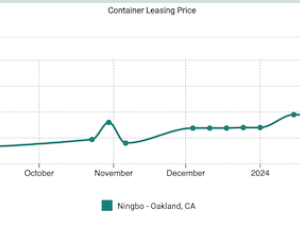Ivory Coast Cocoa Exporters Said to Seek Sale System Changes
By: Olivier Monnier and Baudelaire Mieu | Jun 15 2017 at 01:59 AM | Maritime
Cocoa exporter associations in Ivory Coast told the government that the industry regulator should change the auctioning system of the world’s biggest grower by introducing separate sales for international and local buyers.
Groupement des Negociants Ivoiriens, a group for small and medium-sized exporters known as GNI, and Ucoopexci-Nouvelle, an association for exporting cooperatives, said a plan for separate auctions agreed on in 2012 never got implemented, according to the document sent to Minister of Agriculture Mamadou Sangafowa Coulibaly and obtained by Bloomberg. Two people with knowledge of the situation confirmed that the letter, dated June 7, was authentic.
Under the current system operated by regulator Le Conseil du Cafe Cacao, international companies bid in competition with their local units and give priority to the local branches, the exporters said. While the CCC organizes special sessions in October for international buyers, which are entitled to 20 percent of the crop, as a measure to encourage sales, there’s little appetite for the remaining stock, according to the letter. The situation doesn’t allow shippers adequate time to obtain bank funding, the exporters said in the letter.
This raises the potential for defaults because the contracts are allocated in December at the earliest, the exporters said. The country usually sells more than 80 percent of the bigger of its two annual crops before the season starts in October.
Patrice Raux, a spokesman for the CCC, and Apportune Kouakou, deputy chief of staff at the Ministry of agriculture, didn’t answer calls seeking comment.
Ivory Coast is forecast to produce 1.9 million metric tons of the beans in the season through September, according to International Cocoa Organization data.
Price Collapse
Contracts bought by international shippers are allocated by the CCC to local shippers for delivery, a measure that’s meant to develop the local industry even though it’s not favored by offshore companies because they have no say over which exporter will execute the contract. In the past, some firms have been wary of dealing with Ivorian firms due to concerns that the local companies do not have the infrastructure in place to guarantee the delivery and quantity.
The two exporting groups also asked the government to assess the purchase and export capacity of Ivorian exporters on their available financial resources, in order to allocate international contracts according to objective criteria.









